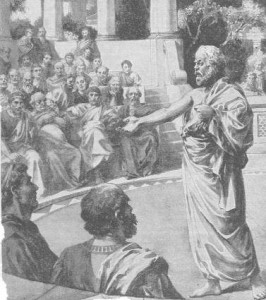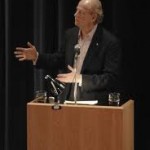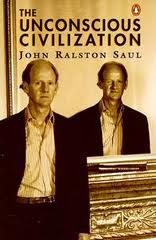Bernard-Henri Levy is celebrated, so I understand, in his native France as a “public intellectual”, as if this was a good thing. It seems their culture tends toward approval of such a beast, which is likely one of the reasons many Americans are suspicious or
dismissive of the French, even before they opposed G.W. Bush’s designs on Iraq. (Remember that? “Freedom fries” were being served at burger joints, because nothing French was palatable to a vociferous portion of American society.) Canadians are also leery of the so-called ivory tower; many think that intellectuals – “smarty pantses” – live nowhere else but white and high and mighty impractical.
Our John Ralston Saul is, therefore, a curious case. He’s not short of praise from various corners of the world: The Unconscious Civilization won Canada’s Governor General’s Award (prior, it must be noted, to his wife Adrienne Clarkson’s mandate), among many honours for his non-fiction and his novels; he’s been the President of International PEN (writers in global advocacy of reading, writing, and freedom of expression) since 2009; he’s a Chevalier of the French Academy of Arts and Letters and has received honorary doctorates around the world; he’s been acclaimed among the “visionaries” of the world by Utne Reader, and a “prophet” by Time magazine. Now, he’ll never make the cover of People, but he’s a Certifiably Celebrated Dude in some pretty lofty circles. But a Canadian? A public intellectual? Surely that sort of thing should be done only in private!




